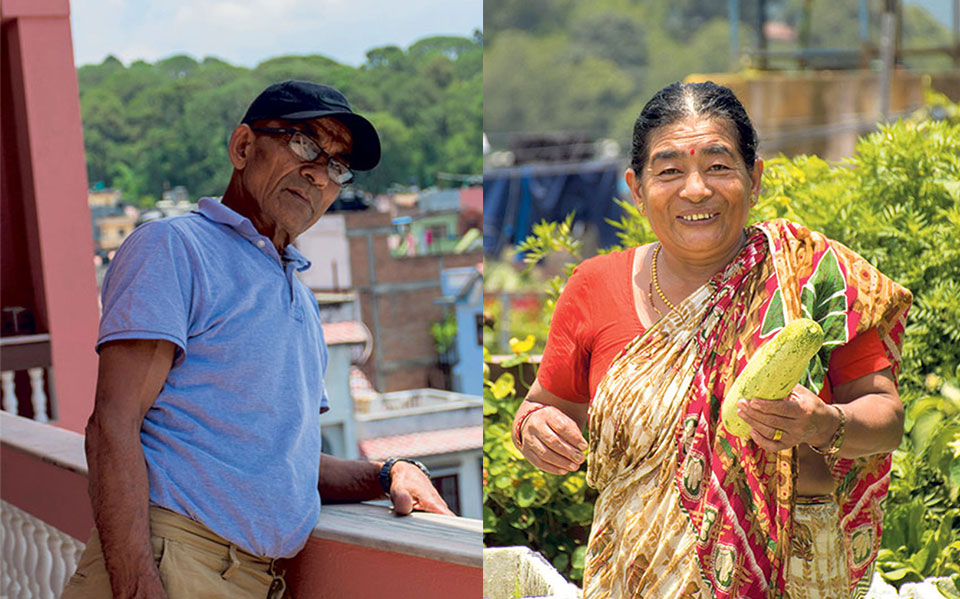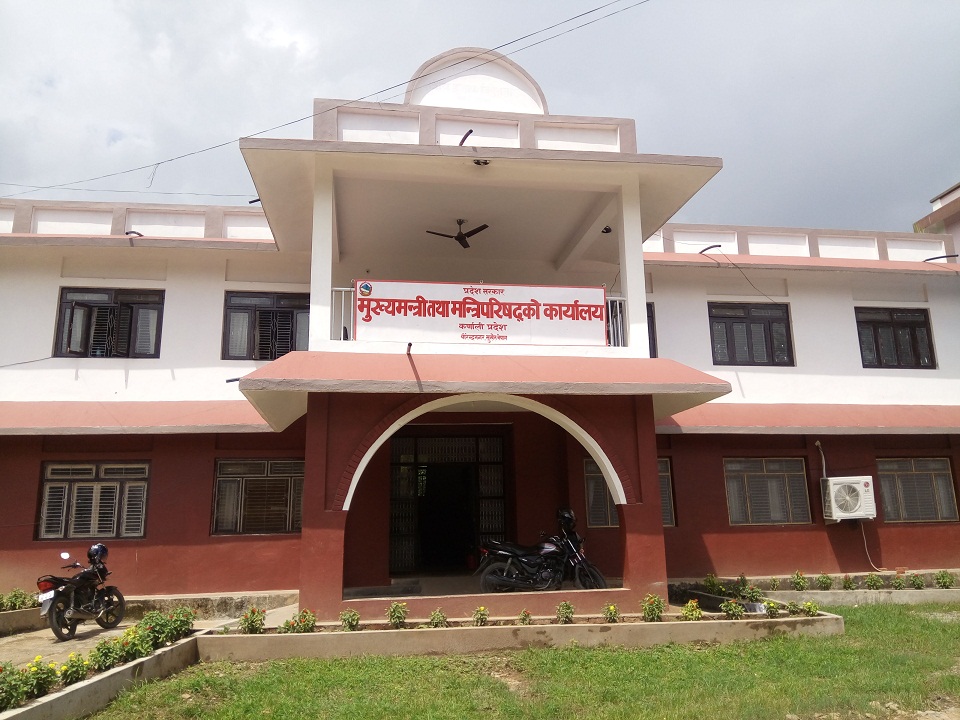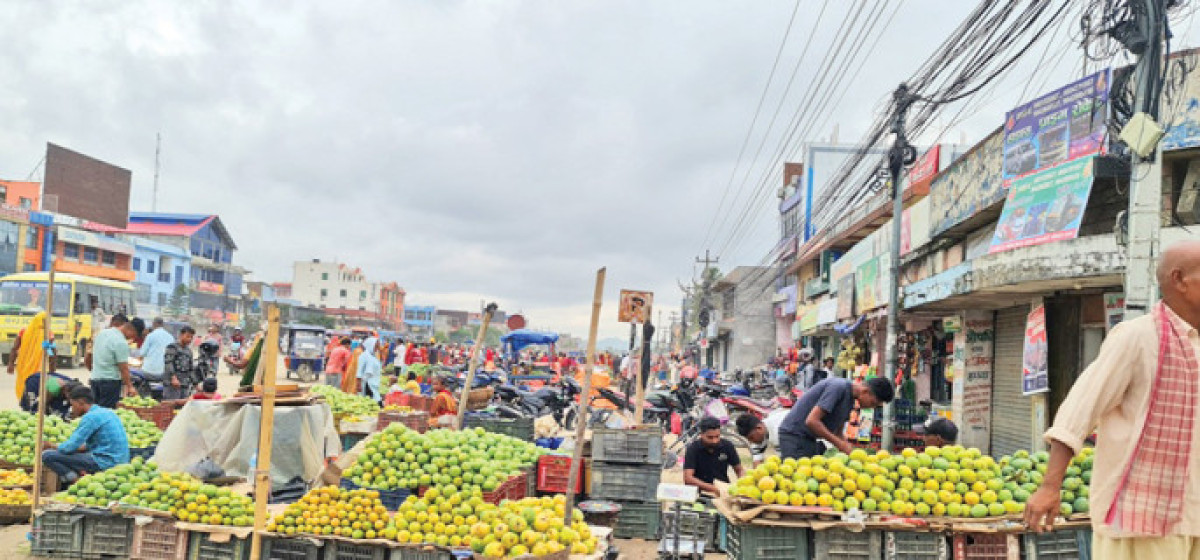
OR
cover story

When Krishna Lal Shrestha left his village for Kathmandu about 40 years ago, he had just Rs 45 in the pockets of his trousers. He had sold a baby goat for the money, after which he left the village with his wife and child. Today, the same man has assets worth quite a substantial amount of money in Kathmandu. His success wasn’t the result of sheer luck or fortune but the willingness to work hard and live life with the motto, ‘work is worship’.
His wife, Tika Devi Shrestha, claims that she still remembers the day when they headed to Kathmandu. According to her, it was one of the saddest days of her life. She cried inconsolably as she crossed the river that separated her village from another district and prayed for the wellbeing of the family members she was leaving behind.
“We had very little money with us. We did not know what we would do, where we would stay, and what we would eat in Kathmandu,” says Tika Devi adding that the uncertainty and the huge responsibility of a small 17-month-old baby when she was just 22 years old was what worried her the most. To make matters worse, the money they had was almost finished by the time they reached Kathmandu.
But Shrestha was determined to leave his village because he wanted change. He desired a better life for himself and his family members. And he knew just working in the village farms was never going to make him happy. Also, one of the major reasons he took this big leap was because of the fact that his beloved wife was never really liked by his family members. According to Shrestha, he loved his wife and could go to any extent to make her happy.
The night they reached Kathmandu, they had nothing to eat and nowhere to sleep. They went from house to house begging for shelter. They were also worried about their son who was small and knew nothing about the struggles to come. Luckily, they were able to find a space above a cowshed that they could rent for a nominal amount, and they lived there for about a month.
That night, Shrestha and his wife borrowed a handful of rice and a utensil to cook from their landlord. They told the landlord that they would repay this debt as soon as they had some money. That is how they filled their stomach in this big city on their first night. Soon afterwards, to bring in some money and feed his family properly, Shrestha started doing labor work in Kathmandu.
According to his wife, Shrestha would work tirelessly day and night without complain. For him, no job was big or small or good or bad. Any work that was given to him would be done in the best and the quickest way possible. Hence, in no time, he became one of the most trusted workers in their locality.
During those days, a laborer would get paid eight rupees for a day’s worth of work. But even then Shrestha would bring home Rs 40-50 every day and for this he worked overtime. If it took others an entire day to carry 1000 bricks, Shrestha would finish it by working from six in the evening to 11 at night.
Bharat Ghimire, one of his neighbors, remembers seeing Shrestha work for an entire night carrying sacks of rice from one place to another. “In my entire lifetime, I have never seen a person who is more hard working than him,” says Ghimire.
His wife would often be concerned about Shrestha’s health. According to her, he barely rested for three hours in a day and was always worried about the wellbeing and happiness of his family instead.
Due to his hard work, in just two years time, Shrestha was able to save about Rs 400 with which he opened a small grocery shop. His wife also started working at a rice mill to sustain their family. Despite having a constant source of income, Shrestha continued working as a laborer whenever he got time. “For me, time is the most precious gift given by god. And I always utilize it to the fullest,” says Shrestha.
Tika Devi too added to her husband’s income as the rice she made at the mill started becoming popular because it was clean and of good quality. But Tika Devi was uneducated and she did not know the actual cost of the product. She says some paid her in cash and others in kind. Some even gave her a larger amount of poor quality rice in exchange of the good quality rice.
She distinctly remembers bringing the poor quality rice home and feeding her family. Many a times, the low quality rice, which was also known as ‘usineko chamal’, used to stink. For her, those days were one of the worst times of her life.
But they continued to work hard every day, and do so very diligently. According to Shrestha, what’s life without a little bit of struggle. “Life would not have been interesting without some problems. The challenges that we faced in life were what kept us going,” he says.
Talking about challenges, his wife also recalls not having enough money to go to the hospital during her pregnancy. She had four children and all of them were delivered at home. According to her, she only went to the hospital when she was extremely sick. While her neighbors helped her during the birth of three of her children, she says she was alone at night when she delivered her youngest daughter. She also had two miscarriages after delivering her first child since they were unable to afford health care facilities.
However, lack of money and the troubles that brought about never dissuaded the couple from working even harder. They worked as much as they could, and as dedicatedly as they could for long and Shrestha was finally in the position to be able to take out a loan to buy a truck and a car. He then started driving the vehicle whenever he got time. When he was busy, he used to let others take it on rent. Gradually, he was able to scrimp together a decent amount of money to buy a plot of land.
Today, Shrestha has a house, a car, and a tractor. His children are all educated and married. According to him, he may have skipped his meals but he never compromised on his children’s education. He always knew that education was important to secure his children’s futures.
The strangest thing is that the rent he gets from his house alone is enough to cover the couple’s expenses but Shrestha still goes to drive his pickup truck early in the morning and comes back late at night after having worked for almost 12 hours straight. Even at 60, Shrestha claims that he cannot just sit at home doing nothing. He intends to work as long as he can, and it is this mindset that has made him an idol of sorts in his locality.
“Since I know how to drive, I will do that till the time my body allows me to,” he says adding that if god has given you hands and legs, you have to make use of it as long as you possibly can. “I will also never leave a profession (driving) that brought so much happiness and prosperity in my life when I needed it the most,” he concludes.
You May Like This

Stem cells to be transplanted into brains of Parkinson's patients in world-first trials
July 31: The deterioration of motor skills in Parkinson's patients is driven by the decline of dopamine production, but researchers... Read More...

Baneshwar triumphs
KATHMANDU, Oct 27: Baneshwar Recreation Futsal Center emerged victorious on Thursday as Kirtipur and Kumari Futsal shared points playing 3-3 draw... Read More...

Budhanilkantha triumphs
KATHMANDU, Aug 21: Budhanilkantha School made a winning start to the First Inter College A Level Football Tournament with a 2-0... Read More...


Just In
- 70 community and national forests affected by fire in Parbat till Wednesday
- NEPSE loses 3.24 points, while daily turnover inclines to Rs 2.36 billion
- Pak Embassy awards scholarships to 180 Nepali students
- President Paudel approves mobilization of army personnel for by-elections security
- Bhajang and Ilam by-elections: 69 polling stations classified as ‘highly sensitive’
- Karnali CM Kandel secures vote of confidence
- National Youth Scientists Conference to be organized in Surkhet
- Rautahat traders call for extended night market hours amid summer heat

















Leave A Comment